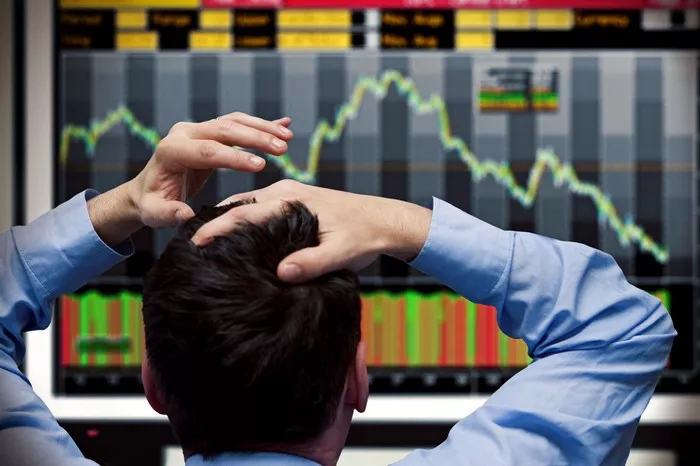Investing in gas futures can be an attractive opportunity for those looking to diversify their investment portfolio or capitalize on price fluctuations in the natural gas market. Gas futures allow investors to speculate on the future price of natural gas, offering potential rewards but also carrying certain risks.
Understanding Gas Futures
Before diving into the process of investing in gas futures, it’s essential to understand what gas futures are and how they work:
Gas futures are financial contracts that obligate the buyer to purchase, and the seller to sell, a specified quantity of natural gas at a predetermined price on a future date. These contracts are standardized and traded on commodity exchanges, providing investors with the ability to speculate on the future price movements of natural gas.
Key features of gas futures trading include:
Leverage: Gas futures contracts typically offer substantial leverage, allowing traders to control a more substantial position with a relatively small amount of capital. However, this leverage can amplify both potential gains and losses.
Speculation and Hedging: Investors can use gas futures for speculation, aiming to profit from price movements, or for hedging, to protect against adverse price fluctuations. Hedgers include energy companies, utilities, and other market participants seeking price stability.
Delivery and Settlement: Gas futures contracts specify the delivery and settlement procedures, including the location of delivery, quantity, and quality of natural gas. Most futures contracts are cash-settled, meaning they do not result in physical delivery of the commodity.
Expiration Dates: Gas futures contracts have expiration dates when the contract must be settled. Traders can choose contracts with different expiration dates to suit their trading strategies.
Investing in Gas Futures: Step by Step
To invest in gas futures, follow these essential steps:
Select a Brokerage: Choose a reputable brokerage or trading platform that offers access to gas futures markets. Ensure the brokerage is regulated and provides the necessary tools and resources for futures trading.
Open an Account: Open a trading account with your chosen brokerage. This typically involves providing personal information, completing a risk assessment, and agreeing to the terms and conditions.
Fund Your Account: Deposit funds into your trading account. Ensure you have sufficient capital to cover margin requirements and potential losses associated with gas futures trading.
Learn the Basics: Familiarize yourself with the fundamentals of gas futures trading. Understand contract specifications, trading hours, margin requirements, and order types.
Analyze the Market: Conduct thorough market analysis to inform your investment decisions. Utilize technical analysis, fundamental analysis, and market research to assess the natural gas market’s current and future conditions.
Place Your Trade: Using your brokerage’s trading platform, place your gas futures trade. Specify the contract, quantity, and order type (e.g., market order, limit order). Consider setting stop-loss and take-profit orders to manage risk.
Monitor Your Investment: Keep a close eye on your gas futures position. Stay informed about market developments that could impact natural gas prices. Adjust your strategy and orders as needed.
Gas Futures Trading Strategies
Successful gas futures trading often involves the implementation of well-defined trading strategies. Here are some common strategies to consider:
Trend Following: This strategy involves identifying and trading in the direction of established trends in natural gas prices. Traders use technical indicators like moving averages to spot trends and enter positions.
Contrarian Trading: Contrarian traders go against prevailing market sentiment. They look for overbought or oversold conditions and anticipate reversals in natural gas prices.
Spread Trading: Spread traders simultaneously buy and sell related gas futures contracts to profit from price differences between them. This strategy can help mitigate risk.
Options Strategies: Options can be used in conjunction with gas futures to create various trading strategies, such as covered calls, straddles, and strangles.
Fundamental Analysis: Fundamental analysis involves analyzing supply and demand factors, weather patterns, storage levels, and geopolitical events that can impact natural gas prices.
Risk Management in Gas Futures Trading
Effective risk management is crucial when investing in gas futures to protect your capital and minimize potential losses. Here are some risk management techniques to consider:
Use Stop-Loss Orders: Implement stop-loss orders to limit potential losses by automatically exiting a position if the market moves against you.
Diversify Your Portfolio: Avoid overconcentration in gas futures. Diversify your investments across different asset classes to spread risk.
Set Realistic Targets: Establish clear profit targets and risk-reward ratios before entering a trade. Stick to your trading plan and avoid chasing unrealistic gains.
Monitor Margin Requirements: Be aware of margin requirements for your gas futures contracts. Inadequate margin can lead to forced liquidation of positions.
Stay Informed: Stay updated on market news and events that can impact natural gas prices. Developments in the energy sector, supply disruptions, or changes in government policies can affect the market.
Position Sizing: Determine the appropriate position size based on your risk tolerance and account size. Avoid risking a significant portion of your capital on a single trade.
Practice Discipline: Follow your trading plan and avoid emotional decision-making. Emotional trading can lead to impulsive and irrational decisions.
Conclusion
Investing in gas futures offers opportunities for traders and investors to profit from price movements in the natural gas market. By selecting a reputable brokerage, learning the basics of gas futures trading, implementing effective trading strategies, and practicing risk management, you can enhance your chances of success in this dynamic and potentially rewarding market. Remember that gas futures trading carries inherent risks, and it’s crucial to approach it with knowledge, discipline, and a well-thought-out trading plan.

